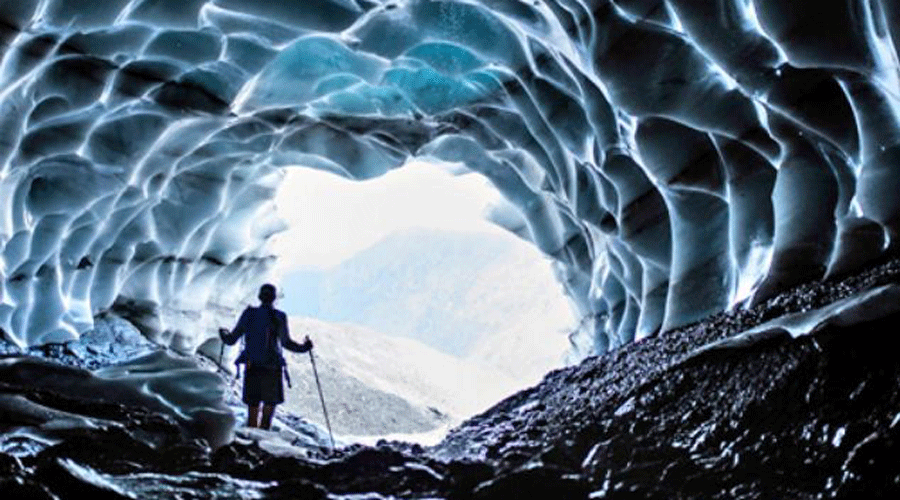From the way 45-year-old Swiss glaciologist Andreas Linsbauer bounds over icy crevasses, you would never guess he was carrying 10 kg of steel equipment needed to chart the decline of Switzerland’s glaciers.
Normally, he heads down this path on the massive Morteratsch Glacier in late September, the end of the summer melt season in the Alps. But exceptionally high ice loss this year has brought him to this 15-sq-km amphitheatre of ice two months early for emergency maintenance work.
The measuring poles he uses to track changes in the depth of the pack are at risk of dislodging entirely as the ice melts away and he needs to drill new holes.
The Alps’ glaciers are on track for their highest mass losses in at least 60 years of record keeping, data shared exclusively with Reuters shows. By looking at the difference in how much snow fell in winter, and how much ice melts in the summer, scientists can measure how much a glacier has shrunk in any given year.
Since last winter, which brought relatively little snowfall, the Alps have sweltered through two big early summer heatwaves — including one in July marked by temperatures near 30° Celsius in the Swiss mountain village of Zermatt.
During this heatwave, the elevation at which water froze was measured at a record high of 5,184 metres compared with the normal summer level of between 3,000-3,500 meters.
Most of the world’s mountain glaciers are retreating due to climate change. But those in the European Alps are especially vulnerable because they are smaller with relatively little ice cover. Temperatures in the Alps are warming at around 0.3°C per decade.











